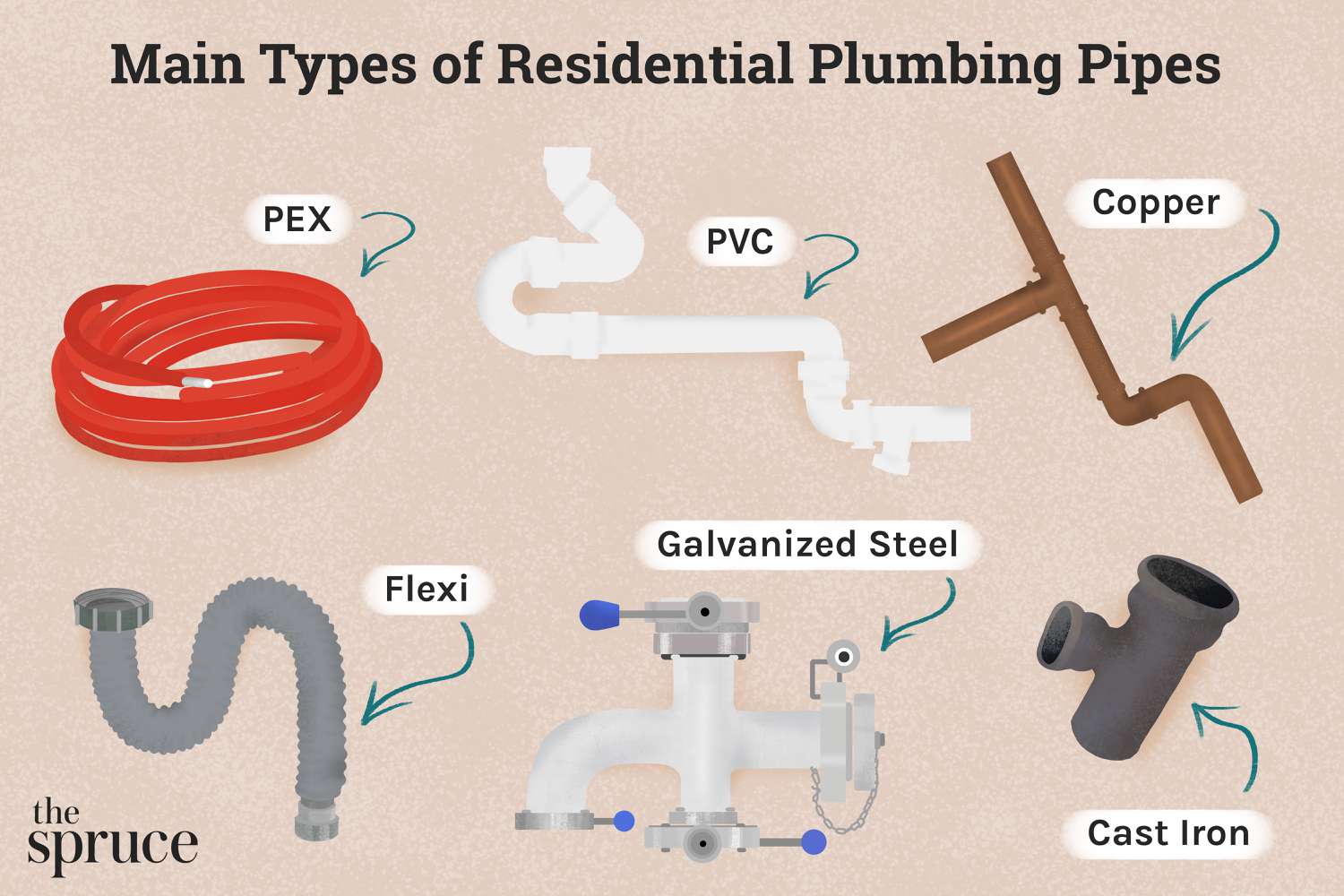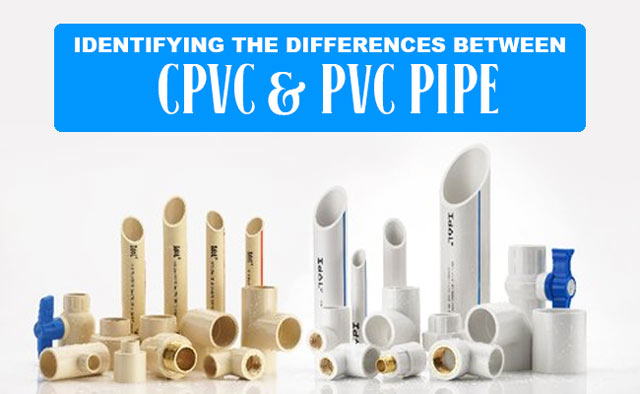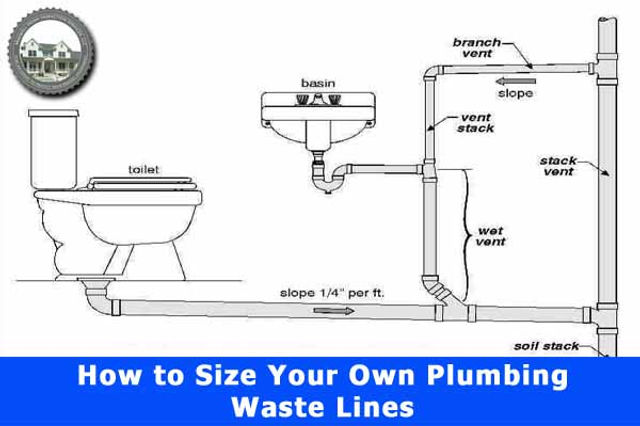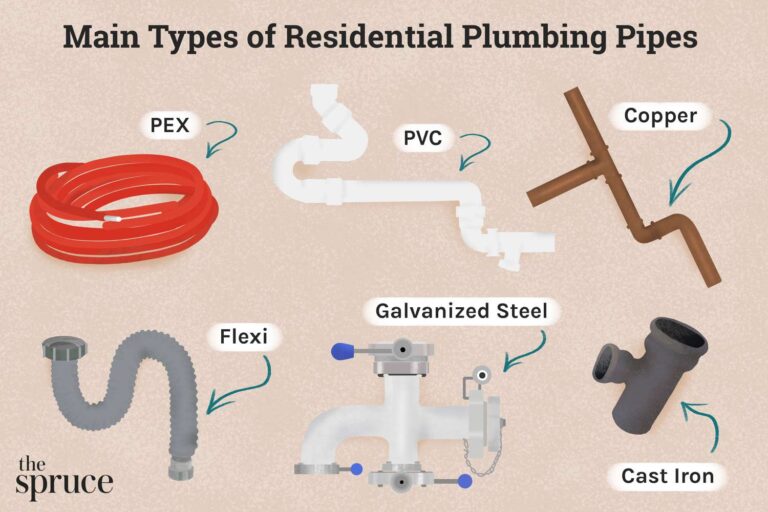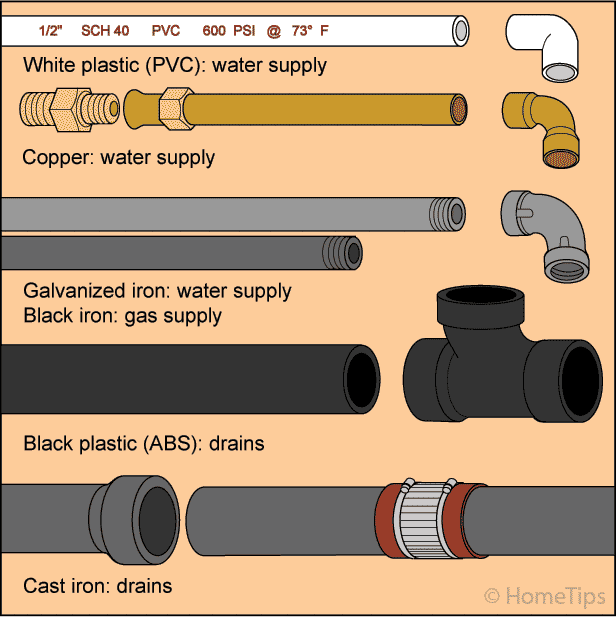Which PVC Pipe Is Best?
https://plumbingger.com/what-are-the-3-types-of-water-supply-system/https://plumbingger.com/what-are-the-3-types-of-water-supply-system/PVC pipes are a great choice for plumbing and drainage projects. With so many options on the market, it can be difficult to determine which PVC pipe is best for your particular project. This guide will help you understand the different types of PVC pipes available and what each type is best suited for. Ultimately, the best solution for you will depend on your specific needs and the environment in which you are working.
Types of PVC Pipe
PVC (Polyvinyl Chloride) pipes are a popular choice for plumbing, heating, and cooling applications due to their durability, affordability, and ease of installation. But with so many types of PVC pipe to choose from, which one is best for your project? In this article, we’ll explore the different types of PVC pipe available, their advantages and disadvantages, and the best applications for each type.
The most common type of PVC pipe is Schedule 40 PVC, which is strong enough for most residential and commercial plumbing applications. Schedule 40 PVC is most often used in drain lines, water supply lines, irrigation systems, and pool and spa systems. It is thick-walled and rigid, making it ideal for pressurized systems.
Another type of PVC pipe is Schedule 80 PVC, which is much thicker and stronger than Schedule 40 PVC. Schedule 80 PVC is most often used in commercial and industrial applications, such as water mains and sewer lines, where higher pressures require more durable pipe.
For outdoor projects, where UV exposure is an issue, there is also Schedule 120 PVC. This type of pipe is much thicker and more resistant to UV rays, making it ideal for outdoor use. It is often used for irrigation, drainage, and pool and spa systems.
Finally, there is DWV (Drain Waste Vent) PVC pipe. This type of pipe is not pressurized and is used for drain, waste, and vent lines. It is thinner and more flexible than Schedule 40 and Schedule 80 PVC, making it easier to install.
There are many types of PVC pipe available, each with its own advantages and disadvantages. By understanding the characteristics of each type, you can choose the best one for your project.
Benefits of PVC Pipe
PVC pipe is a versatile, cost-effective, and durable material that can be used in a variety of applications. It is strong, resilient, and corrosion-resistant, making it an ideal choice for many projects. PVC pipe offers many benefits, including resistance to weathering, affordability, low maintenance costs, and ease of installation. It is also lightweight and flexible, which makes it easy to handle and transport. PVC pipe is also fire-resistant, making it a great choice for use in areas where fire safety is a priority. Additionally, it is also resistant to chemical corrosion, making it ideal for use in industrial settings. PVC pipe is also resistant to root intrusion, which makes it an excellent choice for underground applications. PVC pipe is an excellent choice for plumbing, irrigation, drainage, and other applications that require a reliable and durable material. With its many benefits, it is easy to see why PVC pipe is such a popular choice for projects.
Common Uses of PVC Pipe
When it comes to choosing the right PVC pipe for a particular job, it is important to understand the common uses of PVC pipe. PVC (polyvinyl chloride) pipe is a versatile product that can be used for a variety of applications, ranging from plumbing to electrical conduit and more. PVC pipe is lightweight, easy to install, and highly durable. It can be used for both indoor and outdoor projects, and is available in a variety of sizes and styles.
For plumbing applications, PVC pipe is often used for water supply lines, drains, and waste lines. It is also commonly used for irrigation systems, sprinkler systems, and swimming pool piping. In addition, PVC pipe can be used for electrical conduit, to house wires and cables. It is also used in HVAC systems, as well as for other industrial and commercial applications.
Overall, PVC pipe is an excellent choice for a wide range of applications, due to its durability, versatility, and cost-efficiency. It is important to choose the right size and type of PVC pipe for the project, as well as to consider the intended use. By understanding the common uses of PVC pipe, it is much easier to make an informed decision about which PVC pipe is best for the job.
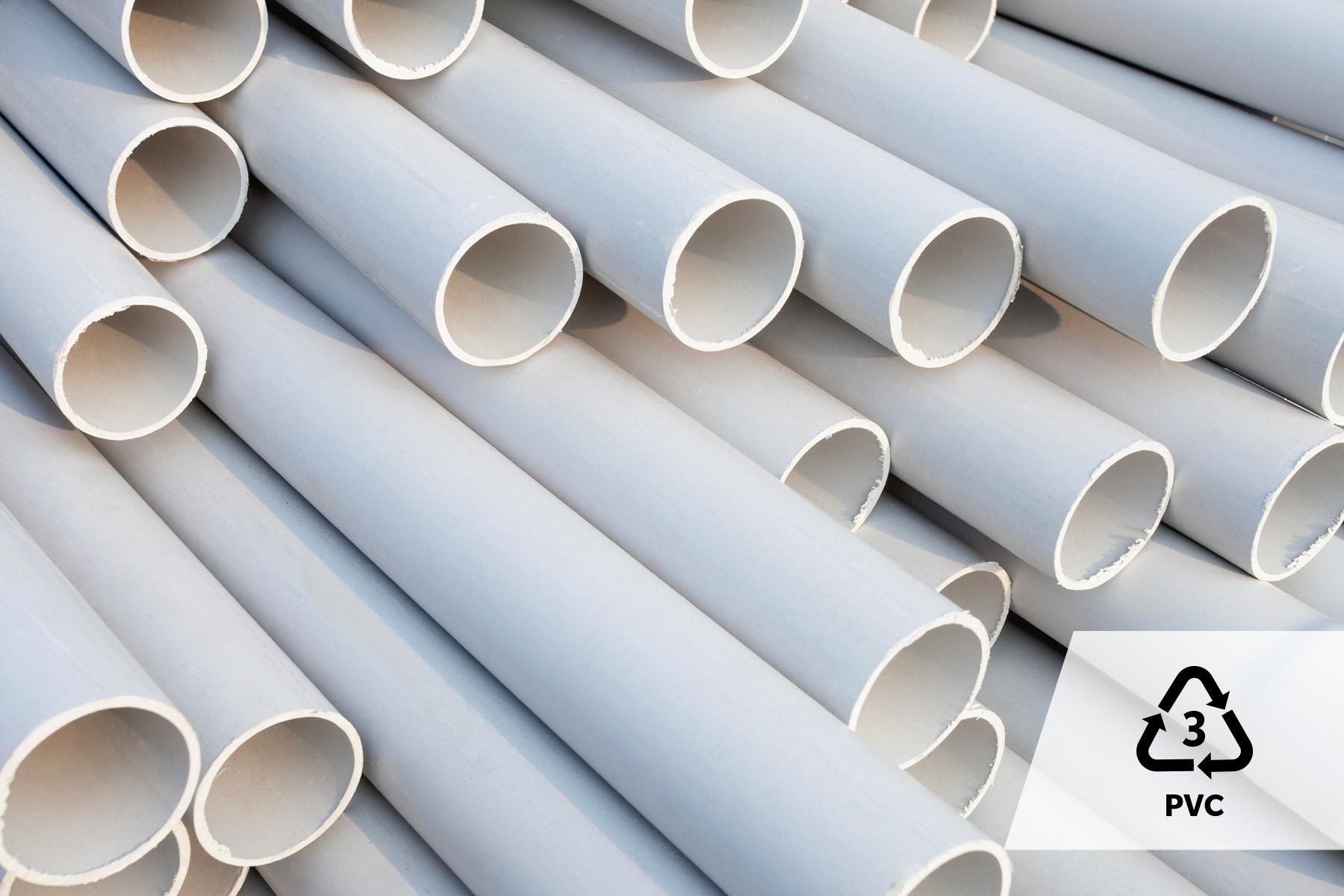
Pros and Cons of Different PVC Pipe Types
PVC pipes are great for a variety of applications, from water pipes to drainpipes. But when it comes to selecting the right pipe for your project, there are a few factors to consider. In this article, we’ll discuss the pros and cons of different types of PVC pipe, including Schedule 40, Schedule 80, and CPVC.
Schedule 40 PVC pipe is the most common type used for plumbing and drainage applications. It’s lightweight, durable, and easy to install, making it a popular choice for DIYers. However, it’s not as strong as other types of PVC pipe, so it’s not recommended for applications that require high pressure.
Schedule 80 PVC pipe is thicker and stronger than Schedule 40, making it ideal for high-pressure applications. It’s also more expensive and slightly harder to install, but it’s a good choice for projects that need a reliable pipe that won’t break under pressure.
CPVC is similar to PVC pipe, but it’s designed to handle higher temperatures. It’s a good choice for hot water lines, as it won’t expand or warp with heat. However, it’s not as strong as Schedule 80 PVC pipe, so it’s not recommended for high-pressure applications.
When deciding which PVC pipe is best for your project, consider the cost, installation difficulty, and the strength and temperature requirements of your application. With the right pipe, you can ensure your project is a success.
How to Choose the Right PVC Pipe
PVC (polyvinyl chloride) pipes are an essential component for many home improvement projects due to their durability and affordability. Choosing the right PVC pipe for your job can be a daunting task, however, as there are many types of PVC pipes available on the market. To help make the selection process easier, here’s a guide on how to choose the right PVC pipe for your project.
First, consider the type of PVC pipe you need. Different types of pipes are designed for different applications, such as drain, waste, and irrigation systems. You should also consider the size of the pipe, as well as the purpose it will be used for.
Next, determine the grade of PVC pipe that is best for your project. There are two types of PVC pipes available, schedule 40 and schedule 80, both of which come in a variety of sizes. Schedule 40 PVC is usually used for residential and light commercial applications, while schedule 80 PVC is typically used for industrial applications.
Finally, consider the cost of the PVC pipe. Prices can vary depending on the type and grade of the pipe, so it’s important to compare prices and shop around. It’s also important to note that PVC pipes are available in both single- and double-wall construction, so be sure to choose the right one for your project.
By following these tips, you can make sure you get the right PVC pipe for your project. With the right selection, you can be sure your project will be a success.
Troubleshooting Common PVC Pipe Issues
When it comes to plumbing, PVC pipe is a popular choice for many homeowners due to its affordability and durability. But like any plumbing material, PVC pipe is susceptible to common issues. If you’re having trouble determining which PVC pipe is best for your needs, it’s important to consider the common issues you may face and how they can be resolved.
Leaks are the most common issue with PVC pipe. This is often due to poor installation, incorrect cutting, or an improper connection. To prevent leaks, ensure that the PVC pipe is cut properly and that all connections are made securely. If you’re already experiencing leaks, you can apply PVC repair tape to the leaking area.
Another common PVC pipe issue is corrosion. PVC pipes are susceptible to corrosion when exposed to certain chemicals or metals, such as chlorine or lead. To prevent corrosion, use a corrosion inhibitor and ensure that your PVC pipe is not exposed to these chemicals.
Finally, PVC pipe can become brittle over time due to extreme temperatures. To prevent this, ensure that the PVC pipe is installed in an area where it is not exposed to extreme temperatures, such as a basement or attic. Additionally, PVC pipes should be inspected annually to check for signs of wear and tear.
By understanding the common issues associated with PVC pipes, you can determine which type of pipe is best for your needs. With the right precautions and maintenance, you can enjoy the many benefits of PVC pipe for years to come.
FAQs About the Which PVC Pipe Is Best?
Q. What kind of PVC pipe should I use for my project?
A. The type of PVC pipe you should use depends on the project and the conditions the pipe will be subjected to. For example, Schedule 40 PVC pipe is best for residential applications and Schedule 80 PVC pipe is best for commercial applications due to its thicker walls and increased pressure rating.
Q. What are the differences between the different types of PVC pipe?
A. The main differences between the different types of PVC pipe are the thickness of the walls. Schedule 40 PVC pipe has thinner walls and a lower pressure rating than Schedule 80 PVC pipe, making it best for residential applications. Schedule 80 PVC pipe has thicker walls and a higher pressure rating, making it better for commercial applications.
Q. How do I know which type of PVC pipe is best for my project?
A. It is important to consider the project and the conditions the pipe will be subjected to when choosing the type of PVC pipe. If you have questions or need assistance, it is best to consult a professional plumber or contractor.
Conclusion
Overall, it is difficult to determine which PVC pipe is best as it depends on the specific application and individual preferences. PVC pipes come in different sizes, grades, and colors, and the one that works best for you will depend on your needs. Generally, thicker and higher grade pipes are better suited for more demanding applications. Additionally, pipes can be coated to provide additional strength, insulation, and protection. Ultimately, the right PVC pipe for your project will depend on your individual preferences and needs.

